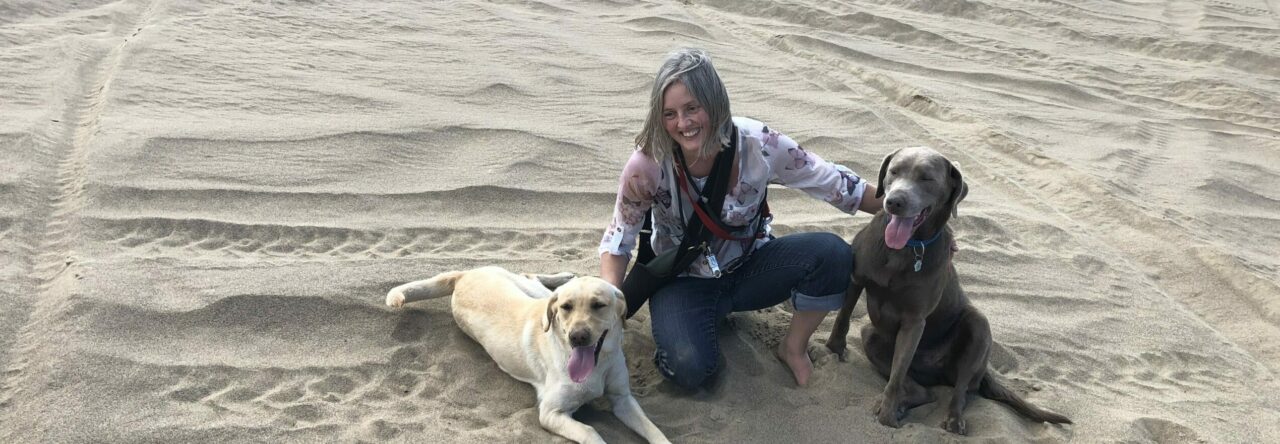Author: onewithanimalsatunbc Page 2 of 3
I believe that spirituality is part of the whole person. The medicine wheel describes the well-being of a person to be balanced and healthy in all four quadrants; Mental, Emotional, Physical, and Spiritual. Spirituality does not have to be connected to religion and can be described as more of a humanistic quality where we all have a place on the earth and we all have a purpose. With the prevalence of mental illness in our society, which statistically appears to be increasing, it seems as though we, as a society, are missing some major pieces to the puzzle of human wellness. Connections to meaning, community, earth, and purposeful being are spirituality, and if we do not have these things the future holds great despair. I feel that teaching spirituality in schools, through a “humanistic” lens, should be considered as essential as teaching literacy or math. After all, if students do not have purpose and meaning then what will drive them to want to learn the ABCs and 123s?
I have always been a more private person and have felt that the privilege of sharing myself and my stories is reserved for those with whom I have built trusting relationships and have invested interest in life with me, for example, family and close friends. I have always enjoyed the interactions and “catchup time” after not seeing someone for a long period of time and felt that this was special and coveted. I have never felt inclined to post my life where others could have a “window into my living room,” so to speak. So, for me, being a digital citizen is a newer concept as my age and my introverted being have not drawn me into this realm.
I now have two children who are fully emersed in this environment, where the expectation to have a digital presence is so normalized that they don’t think much of having multiple social media accounts, blogs, websites, etc. so through them I see the necessity for me to learn along with them and know the benefits and the dangers that this new world brings. It is important, as an educator and a parent, to understand the complexities, from cyberbullying to fraud to misunderstandings and miscommunications to legal implications. It is also important to recognize that these platforms can be used in very positive ways from sharing volunteer and fundraising needs and opportunities, to business and personal growth and advertising, to educational resources and sharing, as well as communication with fellow parents, students, and families.
In knowing how important the digital world is, it is equally important to understand how to be a responsible digital citizen. In the role of an educator, you are very vulnerable as you are a bit of a spectacle in the eyes of your community, students, and their families. It is so important to set boundaries in the digital world and avoid posting anything that can be incriminating, taken the wrong way, or misconceived in any way. It is also important to keep your personal life separate from your public/work life. As an educator you are held to a higher standard so there are always eyes on you, watching for the possibility to exploit your mistakes or discrepancies. Have separate, private social media accounts, that only allow your personal and trusted friends and family access. Having a separate account for communicating with students, parents, and the community is very imperative. Never share a personal phone number or email with students or connect with them outside of the professional platforms. Preventing miscommunication, misunderstandings, and possible professional misconduct through the use of social media requires the separation of personal and private life within digital platforms.
Finally, it is imperative that we set a good example for our students and children by being conscientious of what and how we use digital resources. Ensuring that we know the rules around copyrights, public domains, and sharing of information. It is important that we consider safety and security in relation to cyber threats and always protect our information and that of students and families, by keeping secure password-protected access and internet security software. Further, we must be aware that not all websites are safe, and by entering personal or financial information, we are potentially putting ourselves and our financial health at risk. These are important topics to teach in our children and our students, as it is not common knowledge, despite the fluency in digital technology. It is very important that we always consider that anything that gets posted on the internet in the digital world has the potential of being public information. Once something becomes public in the digital world it can never be erased and can change a person’s life with the tap of a key. Responsible digital citizenship requires each person to recognize that it is their responsibility to ensure that they are considering what they are sharing and connecting with (eg. possibly incriminating or connected with something that we have no idea the depths of damage and social injustice), and take the precautions to keep a safe and “clean” personal and professional digital (and in the flesh) presence.
